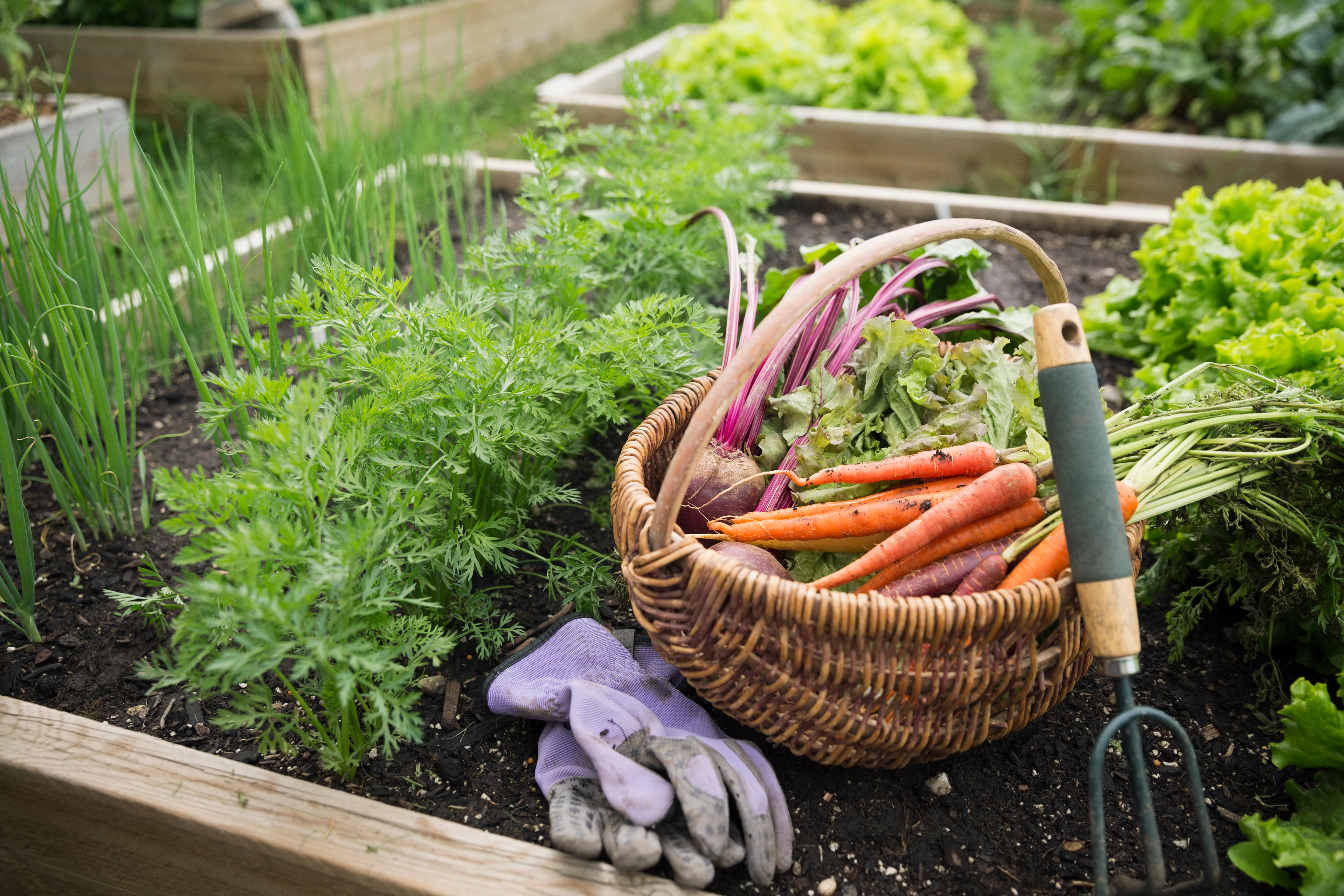Gardening is great
Gardening will make you happier and healthier. And you might just save the planet.


A free daily email with the biggest news stories of the day – and the best features from TheWeek.com
You are now subscribed
Your newsletter sign-up was successful
Spring is here! And what better way to celebrate this new season than plant a garden?
Spring and plants belong together. Whether you live in a part of the country where green shoots and buds are just beginning to burst through the frost or the more temperate areas of the South and West, lengthening days and warmer temperatures spark new life and renewed hopes for the future. It's time to put down the smartphone and pick up your favorite gardening tool. Here's why:
1. Gardening is good for your body
The Week
Escape your echo chamber. Get the facts behind the news, plus analysis from multiple perspectives.

Sign up for The Week's Free Newsletters
From our morning news briefing to a weekly Good News Newsletter, get the best of The Week delivered directly to your inbox.
From our morning news briefing to a weekly Good News Newsletter, get the best of The Week delivered directly to your inbox.
All that bending, squatting, lifting, raking, and digging burns calories and functionally challenges all of the major (and most of the minor) muscle groups in the human body. A daily half-hour of moderate activity in the garden has been shown to increase flexibility, strengthen joints, decrease blood pressure, lower the risk of diabetes and reduce levels of "bad" cholesterol in the body.
Individuals can tailor gardening tasks to personal fitness levels and goals. Hardcore exercisers can throw in more intensive tasks, while those in need of a gentler workout can stick to well-supported basics and concentrate on form. There's something for everybody in the garden.
Furthermore, a growing body of research into the Japanese practice of Shinrin-yoku (translated literally to "forest bathing") indicates the powerful, positive physiological effects of time spent outdoors, moving methodically through nature. Who would have thought weeding a bed of fresh greens could lower resting heart rate and reduce amounts of the stress hormone cortisol as well as a good session of yoga or meditation? Plus, fresh greens!
Growing your own food also improves the quality of your diet. Gardeners who produce their own fruits and vegetables enjoy more variety and greater health benefits from their food than those who rely solely on produce purchased from stores.
A free daily email with the biggest news stories of the day – and the best features from TheWeek.com
2. Gardening is good for your mind
We know regular gardening reduces stress hormones. Spending time tending and harvesting a garden can also reduce anxiety and depression. Just try this: Next time you get home from a particularly tough day at the office ... or when you're just feeling overwhelmed by the pressures of everyday life in general ... spend 15 minutes getting your hands a little dirty. Sort through a packet of seeds. Read the directions. Pat some soil into little pots. Carefully plant your seeds and water them. Find a perfect spot to place them, depending on their requirements for sun and/or shade. Enjoy the simplicity of the activity, as well as the idea that doing something so easy ... so devoid of pressure and insecurity ... has the possibility to yield remarkable results.
This is therapeutic gardening, and it works. Practitioners in this growing trend in the mental health field report significant improvement in the social, emotional, and spiritual well-being of patients who are encouraged to garden.
3. Gardening is good for your soul
Tending to plants is equivalent to nurturing your own heart and mind. Gardeners of all stripes rave about the spiritual lessons learned through the practice: responsibility, balance, connectedness, faith, hope ... even the acceptance of loss. A garden represents the cycle of life, death, and everything in between. It's a great metaphor for those seeking to live mindfully in the powerful present.
4. Gardening is good for every life and every budget
Anyone who's walked out of a grocery store with a bag full of produce and/or a bouquet of flowers and wondered "What just happened to my paycheck?" can tell you: Buying freshly grown fruits, vegetables, and blossoms are expensive. In its 2014 research and report on home-grown produce in the U.S., the National Gardening Association reported a 17 percent increase in private gardens over five years. It is no coincidence that this surge in home gardening coincided with the economic downturn that began in 2008; in good times and in bad, growing your own simply makes good financial sense.
Today, 35 percent of all households grow food and flowers, either at home or in a community garden. Leading the way are millennials, who comprise the fastest growing segment of personal gardeners. This fact makes another excellent point about the practice: You don't need a lot of space and/or money to have a garden.
The American Community Garden Association is connecting interested gardeners with available space (and each other) across the U.S. and Canada. Container gardening can be done anywhere, from a balcony or lanai to your kitchen counter. Sure, it's nice to have a quarter-acre of arable land and raised beds in which you might plant nursery-grown stock to your heart's content. It's equally feasible to grow beautiful food and flowers with shared seeds and recycled containers. Just be open and creative.
5. Gardening is good for the planet
Finally, there is this: Everything you grow at home — every fruit, every vegetable, every decorative plant and flower — is one less thing that must travel through a chain of production and supply that is increasingly costly to the environment. Organic, low-impact farming is near impossible on a large scale. Mass-produced food and flowers cannot be sustainably harvested; it must often be transported great distances. Packaging is not often recyclable, and there is waste and loss at every step of the way.
Contrast this with the local garden, where carefully tended plants convert carbon dioxide into oxygen; where precious pollinators such as butterflies and bees are fostered and encouraged; where everything so grown is precious enough to harvest, consume, and/or compost.
So go ahead. Make this the year you plant your garden. It will make you happier and healthier. And you might just save the planet while you're at it.
Leslie Turnbull is a Harvard-educated anthropologist with over 20 years' experience as a development officer and consultant. She cares for three children, two dogs, and one husband. When not sticking her nose into other peoples' business, she enjoys surfing, cooking, and writing (often bad) poetry.
-
 Local elections 2026: where are they and who is expected to win?
Local elections 2026: where are they and who is expected to win?The Explainer Labour is braced for heavy losses and U-turn on postponing some council elections hasn’t helped the party’s prospects
-
 6 of the world’s most accessible destinations
6 of the world’s most accessible destinationsThe Week Recommends Experience all of Berlin, Singapore and Sydney
-
 How the FCC’s ‘equal time’ rule works
How the FCC’s ‘equal time’ rule worksIn the Spotlight The law is at the heart of the Colbert-CBS conflict
